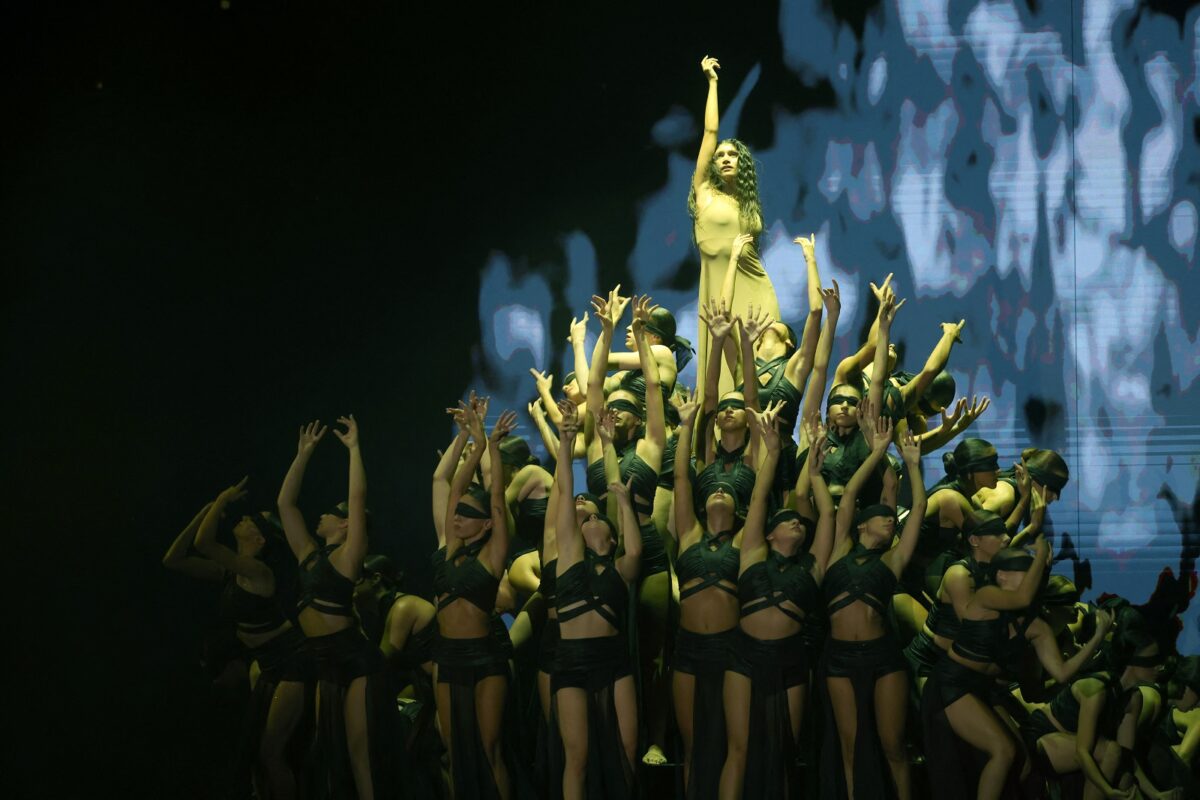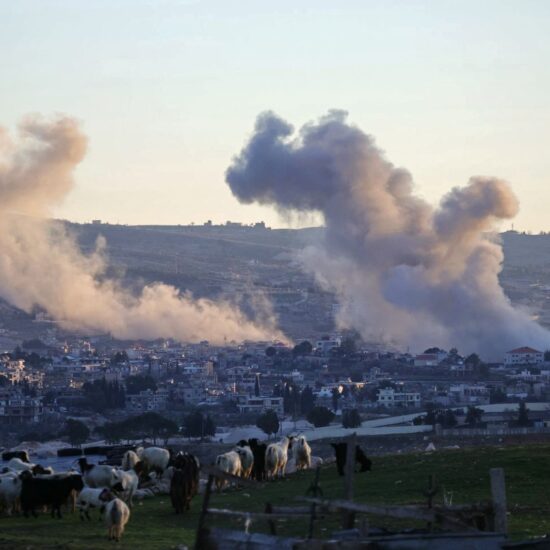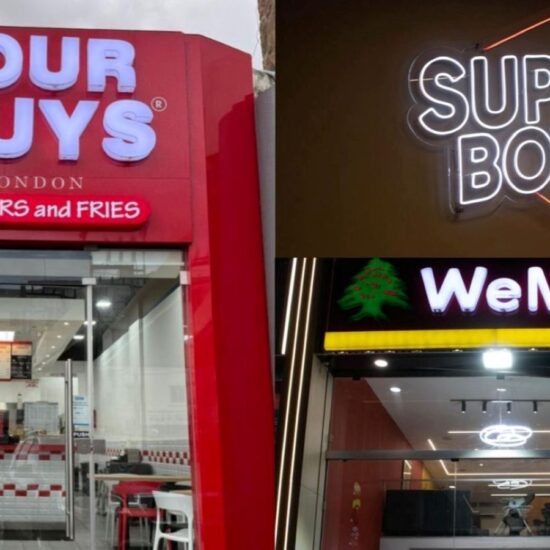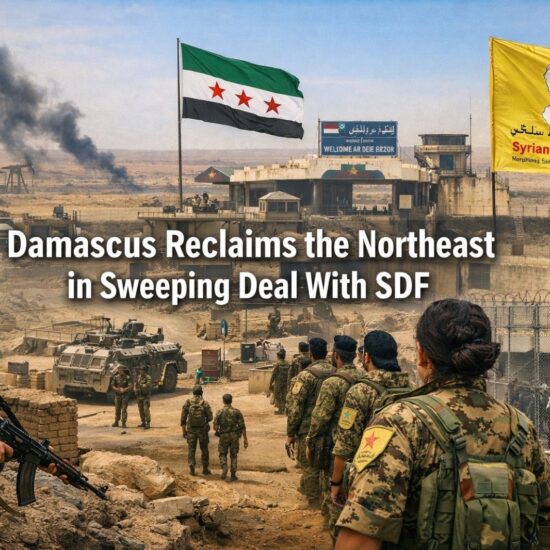
On Twitter, alarm bells ring out On Instagram Lifestyle is business as usual
In Lebanon, the ever-looming specter of conflict between Iran and Israel has sent citizens into a frenzy, scrambling to stockpile food and essentials. This panic has provided a golden opportunity for merchants and traders to unleash their inner profiteers, capitalizing on the fears of a populace already battered by economic turmoil. There has been 98,002 individuals (51% females) displaced from South Lebanon due to the ongoing hostilities as of 9 July. The Ministry of Health reported 1,904 casualties, including 466 deaths. Among these, at least 100 civilian deaths have been confirmed.
The national pastime seems to be navigating the bizarre schizophrenia of social media. On Twitter, alarm bells ring out: “Don’t come to Lebanon! It’s dangerous!” Meanwhile, Instagram paints a picture of opulence, showcasing glamorous lifestyles and luxurious brunches. It’s a delightful contradiction that leaves one wondering if we’re living in the same country.
Scrolling through Instagram, influencers are sipping overpriced lattes with a backdrop of the Mediterranean, while your Twitter feed is filled with warnings about imminent conflict.
It’s as if the Lebanese are caught in a surreal reality show: “Survivor: Beirut Edition.”
In one corner, you have merchants who, sensing the panic, jack up prices on basic goods. “Why sell flour for Usd5 when you can charge Usd20 during a crisis?” they chuckle, rubbing their hands together like cartoon villains. Profiteering has seen prices of meat and poultry rocketing by 40pct in major supermarkets, a NOWLEBANON survey confirmed. In another corner, the Instagram elite flaunt their designer outfits, seemingly untouched by the chaos around them.
This duality creates an absurd landscape where fear and luxury coexist. As citizens rush to stockpile food, the Instagram crowd continues to celebrate life, blissfully unaware—or perhaps intentionally ignorant—of the struggles faced by their fellow countrymen.
In Lebanon, it seems, the only thing more unstable than the economy is the collective psyche.
In the capital’s southern suburbs, a Hezbollah stronghold, tens of thousands of black-clad women and men in military uniform joined the funeral procession for slain commander Fuad Shukr.
Across the city on the Beirut waterfront, nearly 8,000 people attended a spectacular dance show that evening by the Mayyas troupe that won the “America’s Got Talent” television contest in 2022. Lebanon is facing a stark divide in society, where a small segment can afford luxuries like attending Mayass show ranged between Usd50 and Usd250 per ticket, while the majority struggle with soaring inflation and rising prices.
According to the UN-Habitat report, poverty indicators vary significantly across Lebanon’s cities, with some areas having higher rates of poverty and disadvantage.
Inflation has been a major concern in Lebanon, with the country experiencing high rates of price increases in recent years. In 2012, Lebanon’s inflation rate reached 6.6%, driven by factors such as the Syrian crisis and political instability. The situation has only worsened since then, with the economic crisis and the COVID-19 pandemic exacerbating the country’s economic woes.
The cost of living in Lebanon has skyrocketed, making it increasingly difficult for many to afford basic necessities.
How do we compare?
One method is to apply the simple Big Mac index model to Lebanon. BlomInvest Bank research say that comparing the Big Mac index between July 2021 and July 2024 gives an Undervaluation 17.5% as the price of Big Mac Sandwich in US* Usd5.6 compared to Lp 480,000 in Lebanon. With a Purchasing power Parity exchange rate of Lp 73,800 and a market exchange rate of Lp 89,500. The Big Mac index is not hard-core science but it is simple however the crucial thing to remember here is that undervaluation can fall because of two mechanisms: through a higher cost of production, as reflected in a higher price of Big Mac in Lebanon; and/or through an appreciation
of the LBP exchange rate, as reflected in a lower market exchange rate.
Unfortunately, in Lebanon, most of the adjustment in undervaluation happened the wrong way, through higher cost as the price of Big Mac rose by 13 times over three years (from 37,000 LBP to 480,000 LBP).
Lebanon’s average monthly cost of living is approximately $1,097, which is about 5.5% higher than in Jordan, where the average is lower, making Jordan 23% cheaper overall. In contrast, Lebanon is significantly less expensive than the Netherlands, where living costs are 2.4 times higher. Lebanon currently faces the highest food price inflation in the Middle East and North Africa region, with a staggering nominal inflation rate of 352% as of early 2023, according to the World Bank.This dramatic increase has made food prices in Lebanon the most expensive in the region, significantly impacting the affordability of basic necessities for its citizens.
In comparison, countries like Egypt and Turkey have lower food inflation rates of around 30% and 53.9%, respectively. For instance, while a basic meal in Lebanon costs between $7 to $15, similar meals in Egypt are generally more affordable, reflecting the economic disparities exacerbated by Lebanon’s ongoing crisis. Overall, the steep rise in food prices in Lebanon starkly contrasts with other Middle Eastern nations, highlighting the severe economic challenges faced by its population.
In terms of specific expenses, a basic meal in Lebanon costs around $10.17, compared to $6.26 in Jordan and $18.20 in the Netherlands.
Buy reserves … and accept profiteering
Lebanon is experiencing a severe economic crisis, leading to a staggering nominal food inflation rate of 352% as of early 2023. This crisis has diminished purchasing power and increased the cost of living significantly. The Lebanese pound has lost substantial value against foreign currencies, making imports more expensive. Lebanon relies heavily on imported food, exacerbating the inflation problem as global prices rise.
The Lebanese government has implemented export bans on key food items to manage domestic supply, which has led to shortages and increased prices. Ongoing political instability and infrastructural challenges have disrupted supply chains, affecting the availability and cost of food products.
Global commodity price fluctuations, particularly due to events like export bans from other countries, have also impacted food prices in Lebanon,
As Lebanese rush to buy reserves, the price tags on essential goods have skyrocketed. For instance, a simple bag of flour that once cost around Usd5 now hovers near Usd20, thanks to the “special war pricing” that merchants have creatively devised. It’s as if the merchants have formed a secret society, whispering to each other, “Why sell at regular prices when we can profit from panic?”
Take, for example, the case of a local supermarket in Beirut. As tensions escalated, they proudly displayed a sign reading, “Emergency Supplies: Prices Adjusted for Your Peace of Mind!” It’s a bold marketing strategy, to say the least. Customers, bewildered by the sudden spike in prices, were left wondering if the flour was now infused with gold dust or if the rice had been blessed by a warlord.
Minister’s Food control in coma
Meanwhile, the Lebanese government, in a classic display of ineptitude, has been slow to react. With inflation rates soaring and the currency in freefall, the authorities seem more concerned about their next political maneuver than about the plight of the average citizen. Merchants have taken full advantage of this vacuum, creating a marketplace where greed reigns supreme.
The Consumer Protection Association has been vocal about the rampant profiteering, but their pleas often fall on deaf ears. Dr. Zuhair Berro, head of the association, lamented, “It’s like watching a train wreck in slow motion. Merchants are hoarding subsidized goods and selling them at exorbitant prices, all while the government twiddles its thumbs.”
One particularly egregious example of this behavior involves a merchant who bought subsidized flour and then stored it in a warehouse, waiting for the perfect moment to sell it at a 300% markup. When confronted, he shrugged and said, “Supply and demand, my friend. This is how business works.” It’s hard to argue with that logic when the stakes are so high—both for him and for those desperately trying to feed their families.I
n a country where the average citizen is already struggling to make ends meet, the sight of merchants profiting off fear is nothing short of infuriating. The Lebanese people have become accustomed to the idea that they are at the mercy of both their government and the market.
As one frustrated shopper put it, “I feel like I’m in a game of Monopoly, but the rules keep changing, and I’m always losing.”
The absurdity of the situation is further highlighted by the fact that some merchants have begun offering “survival kits” that include overpriced canned goods and bottled water, marketed as “Preparedness Packs.”
These packs, which cost three times what the items would normally sell for, have become a hot commodity. It’s as if the merchants are saying, “Why not profit off your fear of war while we’re at it?”
The irony is palpable: while citizens are hoarding food in anticipation of conflict, the true conflict is unfolding in the marketplace, where the real enemy is greed. As the Lebanese people brace for potential turmoil, they are simultaneously fighting a battle against the very merchants who should be serving them.
In a particularly telling incident, a group of citizens gathered outside a grocery store to protest the outrageous prices. They held up signs reading, “We want food, not war prices!” The merchants, unfazed, simply raised their prices again, proving that in Lebanon, the only thing more resilient than the people is the greed of those who exploit them.
Inflation figures
According to the Central Administration of Statistics (CAS), the Consumer Price Index (CPI), representing the evolution of goods and services’ prices consumed by households, revealed that Lebanon’s inflation rate remained at high levels as it recorded a yearly 41.78% by June 2024, though less than the rates of 2021 – 2023 mainly due to the stability of the exchange rate at the parallel market especially since August 2023. Meanwhile, the continued escalating political and military tensions in the Middle East and its effect on Red Sea with no resolution seen in the near future pose a significant threat for the shipping companies whose ships pass through Bab el Mandeb Strait, a vital global maritime passageway. Such an occurrence is causing supply chain disruptions, an upturn in shipping costs, and consequently, elevated consumer prices. The implications of these developments may result in a broader surge in inflation. As for Lebanon, already struggling with the political and economic challenges causing persistent high inflation since late 2019, it would encounter heightened difficulties in preserving price stability amid prolonged economic uncertainty.
Looking at the prices of “Food and non-alcoholic beverages” (20% of CPI), it surged by 29.58% yearly. In turn, the average prices of “Transportation” (13.1% of the CPI) and “Health” (7.7% of the CPI) recorded hikes of an annual 18.55% and 47.24% respectively by June 2024. Also, “Restaurant and Hotels” (2.8% of CPI) increased yearly by 23.77% by June 2024.According to the UN-Habitat report, the average sale price per square meter in Lebanon’s cities ranges from $1,200 to $3,000, putting home ownership out of reach for many. The report also highlights the disparities in access to basic services, such as water and sanitation, with some neighborhoods lacking adequate infrastructure.
Despite these challenges, a small segment of the population continues to enjoy a lavish lifestyle.
While Lebanon’s cost of living is manageable for some, ongoing inflation and economic challenges have strained many households, highlighting the disparities within the region.
Where do we go from here
The recent Mayass concert, is a stark example of the divide in Lebanese society. While the concert may have been a success for the organizers, it serves as a reminder of the vast inequality that exists in the country.
The contrast between the high-end concert and the struggles of the average Lebanese citizen is particularly jarring. As the country grapples with economic hardship, it is crucial that the government and civil society work together to address the root causes of inequality and ensure that all citizens have access to basic services and opportunities.
One potential solution is to implement targeted social welfare programs that provide assistance to those most in need. This could include subsidies for essential goods, job training and employment programs, and investments in affordable housing and infrastructure. Additionally, efforts should be made to tackle corruption and ensure that public resources are used efficiently and equitably.
In conclusion, the divide in Lebanese society is a complex issue that requires a multifaceted approach. By addressing inequality, investing in social services, and promoting inclusive economic growth, Lebanon can work towards a more just and prosperous future for all its citizens.
cycle of profiteering can last. Will the Lebanese people finally rise up against the merchants who have turned their suffering into profit? Or will they continue to endure, caught in a web of fear and exploitation?
In the end, the true tragedy of Lebanon is not just the looming threat of war but the insatiable greed of those who see an opportunity in every crisis. As the nation holds its breath, waiting for the next chapter in this ongoing saga, one thing is certain: the merchants will be there, ready to cash in on whatever comes next.
Maan Barazy is an economist and founder and president of the National Council of Entrepreneurship and Innovation. He tweets @maanbarazy.
The views in this story reflect those of the author alone and do not necessarily reflect the beliefs of NOW.








